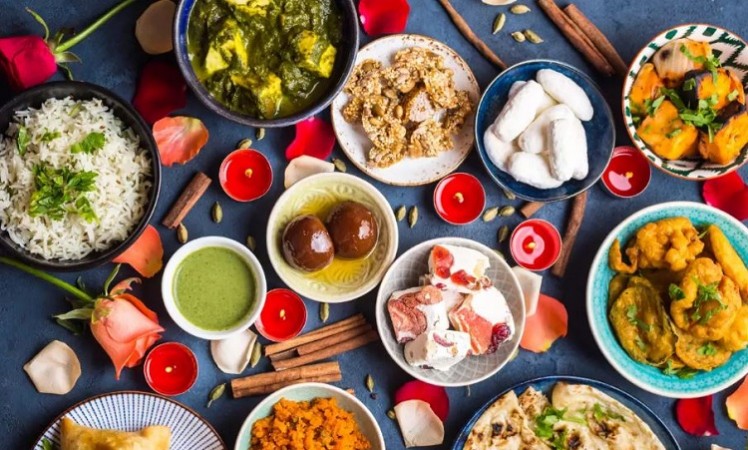
Diwali, the festival of lights, is a time for joy, celebration, and feasting. Traditional Diwali recipes are often rich, indulgent, and packed with ghee, sugar, and fried goodness. While these treats are undeniably delicious, they can take a toll on your health. This Diwali, why not strike a balance between tradition and well-being by exploring healthier alternatives to your favorite Diwali delights? In this article, we will compare traditional Diwali recipes with their healthier counterparts to help you make conscious choices that satisfy both your taste buds and your well-being.
Traditional Diwali Delights
Samosas: Samosas, deep-fried triangular pastries filled with spiced potatoes or meat, are a beloved Diwali snack. However, the deep frying can make them a high-calorie indulgence that is hard to resist.
Gulab Jamun: These syrup-soaked, deep-fried dough balls are irresistibly sweet and calorie-laden. They are a Diwali staple, but they can quickly lead to sugar crashes and weight gain.
Jalebi: This deep-fried spiral of pretzel-shaped sweet dough, soaked in sugar syrup, is a delightful Diwali dessert. But its high sugar and oil content make it a less-than-ideal choice for your health.
Murukku: These crispy, deep-fried, savory snacks are perfect for munching during Diwali, but the oil and refined flour content can contribute to unhealthy eating habits.
Healthy Diwali Delights
Baked Samosas: Swap out deep-fried samosas with baked versions. Use whole wheat pastry and fill them with a mix of vegetables, lean protein, and aromatic spices. Baking reduces the oil content and keeps the crunch.
Dry Fruit Ladoo: Instead of gulab jamun, opt for homemade dry fruit ladoos. They are made by blending nuts and dried fruits and binding them with natural sweeteners like dates. These are rich in nutrients and lower in empty calories.
Baked Jalebi: Prepare jalebis at home by baking them instead of deep-frying. This cuts down on the excess oil and still satisfies your sweet tooth. Use a sugar-free or low-sugar syrup for a healthier option.
Baked Murukku: Baking murukku instead of deep-frying it is a great way to enjoy this savory snack without the added oil. You can also use whole grain flours and reduce salt for a healthier alternative.
Balancing Tradition and Health
Use Whole Grains: When adapting traditional recipes to be healthier, substitute refined flours with whole grain flours like whole wheat, brown rice, or millet. Whole grains are rich in fiber, vitamins, and minerals.
Healthy Fats: Opt for healthier cooking fats like olive oil or coconut oil in moderation, and use less of it than traditional recipes might call for.
Lean Proteins: Incorporate lean protein sources like tofu, legumes, or lean meats instead of fatty cuts of meat in your dishes.
Portion Control: It's okay to indulge in traditional Diwali sweets and snacks in moderation. Practice portion control to prevent overeating.
Choose Natural Sweeteners: When making sweets, replace refined sugar with natural sweeteners like honey, maple syrup, or stevia.
Balanced Spices: Traditional spices are excellent for flavor, but watch your salt intake. Use aromatic spices like cinnamon, cardamom, and nutmeg for flavor without excess sodium.
This Diwali, you don't have to compromise on taste to maintain a healthy lifestyle. By making thoughtful choices and adapting traditional recipes to be healthier, you can enjoy the festivities without guilt. Remember, it's all about balance. You can savor the essence of Diwali while taking care of your well-being. So, go ahead, celebrate the festival of lights with delicious, healthier versions of your favorite Diwali delights, and relish the joy of good health. Wishing you a happy and healthy Diwali!